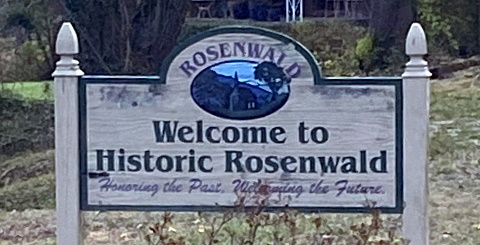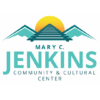Old Rosenwald

The Neighborhood Prior to Integration
This a part of an article by Lewis E. Whiteside, Sr. that appeared in The Transylvania Times on Thursday, February 21, 2002
As a child, growing up less than 50 yards from the old white frame Bethel Baptist Church, I had a good eye’s view of the Rosenwald Community.
Let’s go back and take a look. The Rosenwald Community was divided into several distinct sections, such as Goose Hollow, Georgia Hill and Happy Hollow on the far side of the railroad tracks. On the other side, it was Greasy Corner and Hemphill Circle. The majority of the black citizens lived in the Rosenwald Community but there were four other communities, which were separated from Rosenwald by distance and name only. For their citizens lived under the same conditions that we did, attended the same schools, (one which was ironically named Rosenwald Elementary School and the other Ninth Avenue High in Hendersonville), worshipped together at one of the five churches, (Bethel, Bethel A, The Holiness, French Broad or Glade Creek), were members of the same families, shopped at the same businesses and used the same hospitals, doctors, etc., as we did. Those communities were Pinnacle, Frog Bottom, French Broad and Glade Creek. It is impossible to conceive of the old Rosenwald Community without including them.
During the late 50’s and early 60’s, I can recall a minimum of 20 operating businesses in the neighborhood: Five black owned and operated convenience stores: Mills Groceries operated by Rev. J.F.W. Mills, originally, then by Sherman Crite, Jr.; Killian’s Groceries operated by Ms. Annie B. Killian; Hill’s Parlor operated by Ms. Matttie Pierce and her daughter Ms. Dorothy Hill; Mr. Grady Elliott’s Café operated by Mr. Grady Elliott; Whiteside’s Café operated at various times by Roy Whiteside, Ed and Ophelia Hutchison and Sam and Winona Whiteside.
The two taxi services included Bailey’s operated by George Bailey and Killian’s operated by Ed Killian, who was also the Constable.
There were two black barbers, Betsill’s Barber Shop operated by Victor Betsill and Hutchison’s operated by William Henry Hutchison. The two black beauty parlors were Mills operated by Ms. Callie Mills and Kelly’s operated by Ms. Evon Kelly.
The two black owned and operated garbage services included Elliott’s operated by Grady Elliott, Sr. and Mackey’s operated by Cleo Mackey.
There were four realtors who owned and managed rental homes including Rev. and Mrs. J.F.W. Mills; Mr. and Mrs. Avery Benjamin; Mr. and Mrs. Leroy Brown and Mr. and Mrs. Leroy Whiteside.
The two black masons/contractors included Avery Benjamin and Fred Mills. (Their homes on West Main Street and the walls of the Education Building are evidence of their skills and ability.) There was one janitorial service, Sherman’s, owned and operated by Sherman Crite.
And yes, also in the Rosenwald Community was one elementary school, fully staffed with professional teachers better known as Ms. Gertie Hemphill, Ms. Synetha Glenn Benjamin, Ms. J.J. Smith, Mr. William McLaughin, Rev. R.T. Duncan, Ms. Margaret Avery, Ms. Wilkie Johnstone, Mr. Paul Hunter, Ms. Mary Kilgore, Ms. Annie Marie Hailey and Ms. Ethel Mills, Principal. The professional cafeteria was staffed by Ms. Trilby Elliott and Ms. Marie Davenport.
There was one community center which was used for many of the community activities including day care, fund raisers, community meetings such a NAACP, CIO, etc., dinners, movies, dances and other social gatherings.
The current Mills Avenue, named in honor of J,F.W. Mills, was dirt and named Picklesimer. Each of those 13 businesses and the school were located within a half mile of this street and 11 of the 19 proprietors and/or businessmen or women lived on this street.
Families and churches were supportive of each other. Families worshiped together. Children attending church or school was the only option. Families ate together regularly and parents did not use television to babysit children. There was a distinct difference between a parent/adult and a child. Children did not rule the house. As a matter of fact, it did take a neighborhood to raise a child. It was called discipline when parents or any adult corrected a child through appropriate means.
The economic conditions were not good. Other than the previously mentioned businesses and professions, the citizens primarily were domestic workers and janitors. There was love and respect, one community citizen for another. That is my belief and that is my reflection on how I remember the old Rosenwald.
